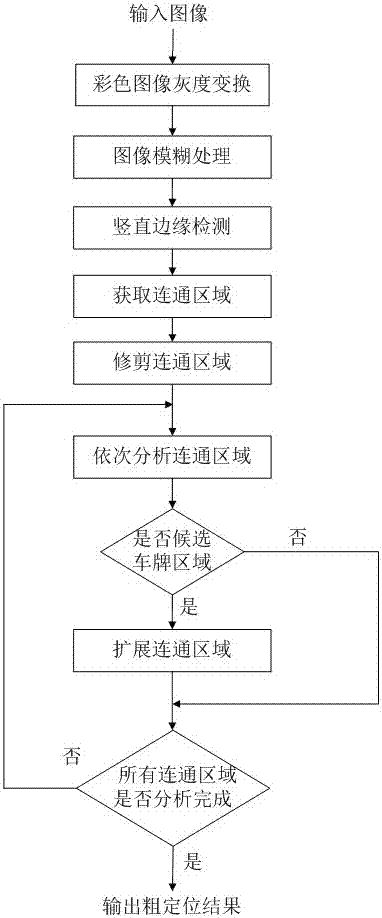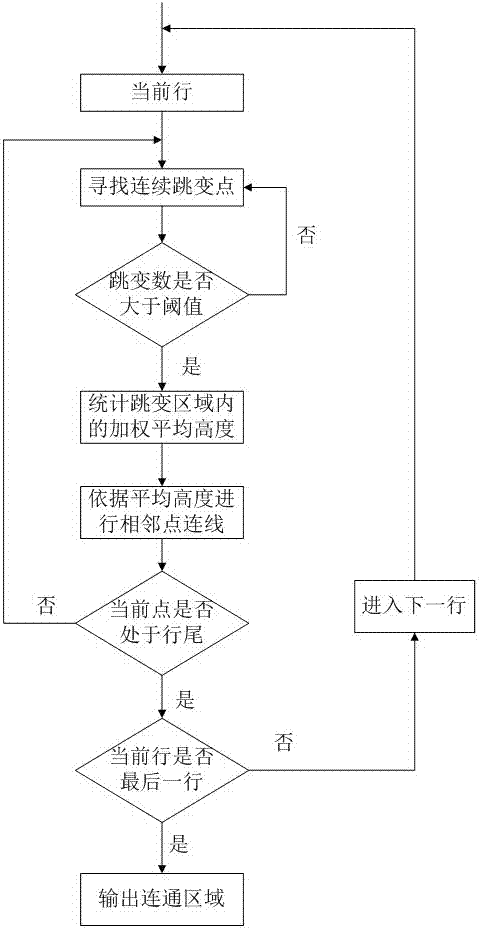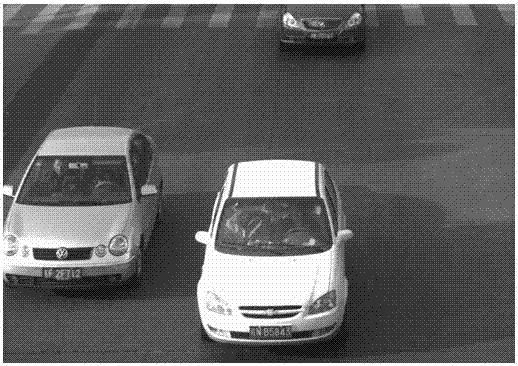A Coarse License Plate Location Method Based on Adaptive Edge Features
An edge feature and self-adaptive technology, applied in the field of license plate recognition, can solve problems such as poor adaptability, reduced algorithm speed, multiple false detections, etc., and achieve the effect of efficient algorithm and accurate connected areas
- Summary
- Abstract
- Description
- Claims
- Application Information
AI Technical Summary
Problems solved by technology
Method used
Image
Examples
Embodiment Construction
[0051] The present invention will be further described below in conjunction with the accompanying drawings and specific embodiments.
[0052] Such as figure 1 As shown, a rough license plate location method based on adaptive edge features includes the following sequential steps:
[0053] S1. According to the formula (1), transform the color image into a grayscale image, the effect is as follows image 3 Shown:
[0054]f=0.299R+0.587G+0.114B (1)
[0055] Among them, f represents the grayscale image value, and R, G, and B represent the values of the red, green, and blue channels of the corresponding pixel, respectively.
[0056] S2. Use a mean value filter to blur the grayscale image to remove some interference details.
[0057] Because the license plate area has specific size characteristics, the present invention uses a rectangular convolution kernel as shown in formula (2) to complete the mean value filtering of the image. Although blurring will destroy the details of ...
PUM
 Login to View More
Login to View More Abstract
Description
Claims
Application Information
 Login to View More
Login to View More - R&D
- Intellectual Property
- Life Sciences
- Materials
- Tech Scout
- Unparalleled Data Quality
- Higher Quality Content
- 60% Fewer Hallucinations
Browse by: Latest US Patents, China's latest patents, Technical Efficacy Thesaurus, Application Domain, Technology Topic, Popular Technical Reports.
© 2025 PatSnap. All rights reserved.Legal|Privacy policy|Modern Slavery Act Transparency Statement|Sitemap|About US| Contact US: help@patsnap.com



